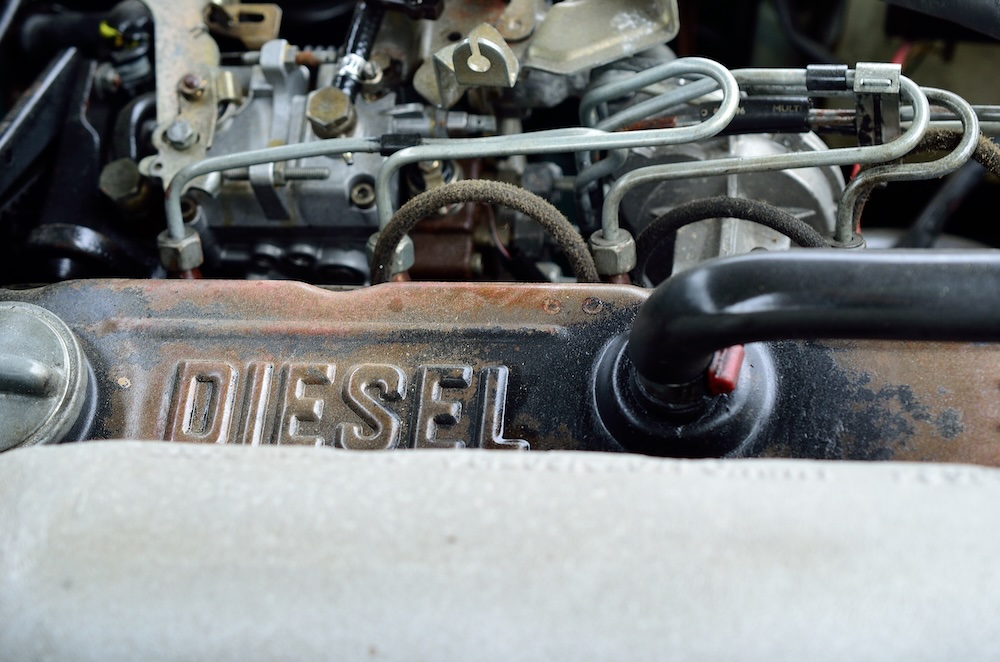How Does a Diesel Engine Work? A Step-by-Step Explanation
Understanding how a diesel engine works is the first step in maintaining its performance. A diesel engine is a type of internal combustion engine that operates using diesel fuel, which is more energy-dense than gasoline. The key difference between a diesel engine and a gasoline engine lies in how the fuel is ignited.
Here's a quick rundown of the basic process:
- Intake Stroke: The intake valve opens, allowing air to enter the combustion chamber.
- Compression Stroke: The piston moves up, compressing the air inside the cylinder. Diesel engines rely on high pressure to ignite the fuel.
- Fuel Injection: Once the air is compressed, diesel fuel is injected directly into the cylinder at high pressure. The heat created by compression causes the fuel to ignite.
- Power Stroke: Fuel combustion forces the piston down, generating power to turn the crankshaft and move the vehicle.
- Exhaust Stroke: Finally, the exhaust valve opens to release the combustion gases.
Understanding this process helps truck drivers and fleet operators appreciate the importance of keeping all engine components in good working order, as even small issues can lead to significant performance problems.
Common Diesel Engine Problems and How to Fix Them
Despite their durability, diesel engines are not immune to problems. Below are some of the most common diesel engine problems and how to fix them:
1. Fuel System Issues
Fuel injectors can clog or malfunction over time, leading to poor engine performance, rough idling, or hard starting.
Fix:
Regularly replace fuel filters and inspect injectors for signs of wear. Use high-quality diesel fuel to prevent deposits from forming.
2. Low Compression
If the engine's compression is low, it may fail to generate enough power. Worn-out piston rings, cylinder heads, or valves can cause this.
Fix:
Regular compression tests should be conducted to catch issues early. If low compression is found, the affected parts may need replacing or servicing.
3. Overheating
Overheating is common in diesel engines, primarily if the cooling system isn't functioning properly. Clogged radiators, broken water pumps, or low coolant levels can cause the engine to overheat.
Fix:
Inspect the cooling system regularly for leaks and flush the coolant system to ensure it's working efficiently. Always keep coolant levels at the manufacturer's recommended levels.
4. Oil Contamination
Diesel engines rely on high-quality oil to lubricate engine parts. Contaminated oil can lead to excessive wear and engine failure.
Fix:
Change the oil regularly and monitor oil levels to ensure they're within the recommended range. Consider using synthetic oil for better protection against contaminants.
Diesel Engine Maintenance Checklist for Long-Term Performance
Maintaining a diesel engine requires regular checks and services. Here's a diesel engine maintenance checklist to ensure long-term performance:
- Check Oil and Replace Regularly Change the oil every 10,000–15,000 miles or according to the manufacturer's guidelines. Regular oil changes prevent engine wear and keep the engine clean.
- Inspect Fuel System Clean or replace fuel filters as recommended. Clogged filters can affect engine performance and lead to fuel system issues.
- Monitor Coolant Levels Check coolant levels regularly to ensure the engine stays within optimal operating temperatures. Clean the radiator and hoses to prevent blockages.
- Inspect Air Filters A clogged air filter can reduce performance and fuel efficiency. Replace air filters every 12,000 miles or sooner if you're driving in dusty conditions.
- Check Belts and Hoses Inspect belts and hoses for signs of wear and replace them as necessary. A snapped belt or cracked hose can lead to engine damage or overheating.
- Test the Battery Diesel trucks rely on powerful batteries to start the engine. Test your battery regularly to ensure it's in good condition, especially before long trips.
- Perform Regular Exhaust System Checks Inspect the exhaust system for leaks or damage that could affect engine performance or safety.
Following this checklist can prevent major engine problems and avoid costly repairs.

Key Benefits of Proper Diesel Truck Maintenance
Proper diesel truck maintenance offers several key benefits beyond just avoiding breakdowns. Here's why maintaining your diesel engine is essential:
1. Improved Performance
Regular maintenance ensures that your engine is running at its best. Well-maintained engines are more efficient, offering better fuel economy, smoother operation, and more excellent overall performance.
2. Increased Lifespan
Routine maintenance can extend the life of your diesel truck. Addressing small issues before they become major problems prevents expensive repairs and reduces the likelihood of early engine failure.
3. Enhanced Safety
A well-maintained engine reduces the risk of mechanical failure while on the road, which can be dangerous. Regular inspections and repairs ensure that your truck is safe for the driver and others on the road.
4. Reduced Operating Costs
Neglecting maintenance can lead to costly repairs down the line. Regular maintenance helps you avoid these expenses and keeps your truck running efficiently, reducing fuel costs and downtime.
5. Environmental Benefits
Engines that work well emitless pollution, which makes your business more sustainable. If you keep your diesel engine in excellent condition, you are taking a step in the right direction to reduce your impact on the environment.
By keeping up with diesel engine maintenance tips, you can avoid wasting your time and money and prevent challenges further down the road. For additional advice or inquiries on how to maintain safety, health, and balance in your profession, Kimble Companies can help. Contact us for more information about our diesel mechanic jobs.